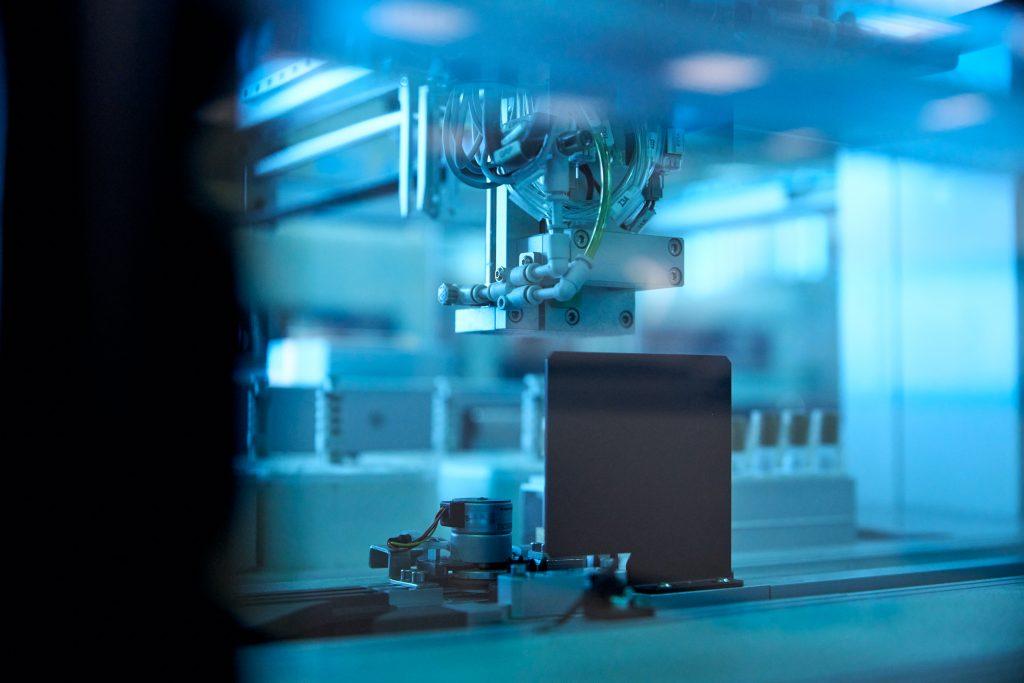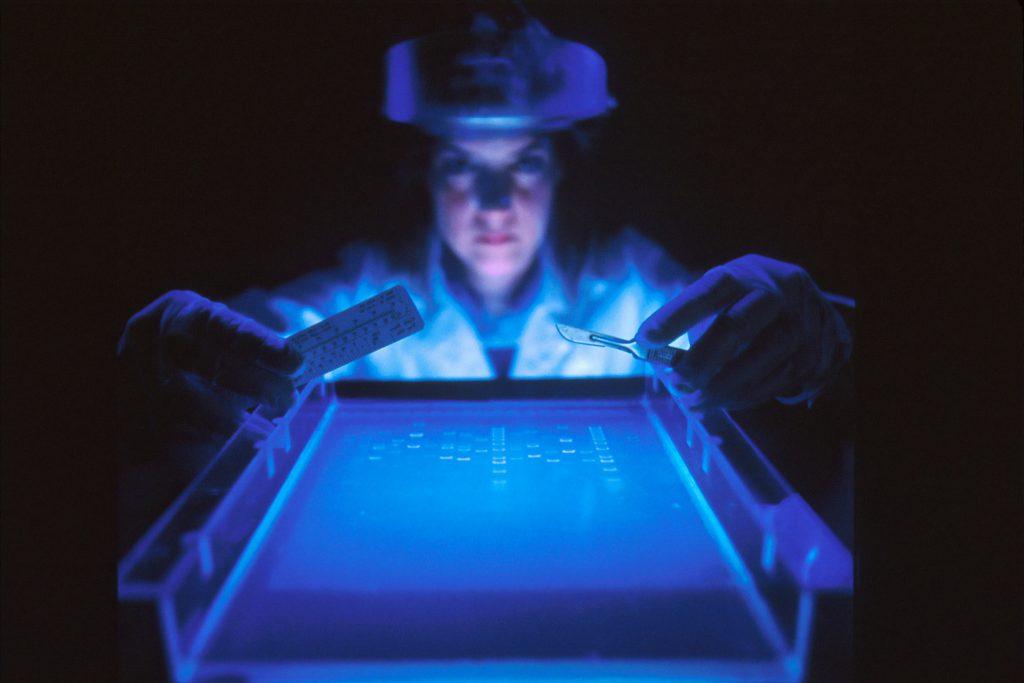
When you hear or see the word LABORATORY, the first thing that comes to mind includes blood samples, urine and stool sample, test tubes, or any other thing based on your experience with the laboratory in time past.
Only a few would imagine that technology (tech for short) would have a place there. This is because many people are yet to understand that there is no industry on earth that has not benefitted one way or the other from one form of technological innovation.
Digital technologies have made it possible for some basic life-saving emergency laboratory services to be delivered at supersonic speed.
Imagine if you had to wait for two weeks or even more to receive a laboratory investigation result that will be needed by your physician or healthcare team to determine the next treatment action that will save your life or the life of a loved one.
Well, let’s not imagine stuff like that.
Instead, we will be extremely appreciative of the technological breakthroughs that have revolutionalized laboratory services in the healthcare ecosystem, saving lives and reducing costs.
A lot of events ensue behind the scene before laboratory results are handed over to patients. And the absence of the incorporation of technology into biomedical practices will give birth to the imagined scenario we talked about earlier.
Whereas the presence and maximization of technology have helped ensure that the right intervention is made at the right time. And this is the goal of technology in biomedical science.
Technology has found its way into biomedical laboratory science and has left its Midas touch on all levels of operation in the laboratory.
Starting from writing down the correct name on the biological sample collected (pre-analytical) to the analysis of the sample (analytical stage) and giving out the right result to the right patient (post-analytical stage).
Technology has made its way into biomedical practice under the concept of “automation”. And all aspects of the workflow in the laboratory can be automated and this article gives further insight.
THE PRESENT
The biomedical laboratory science field is made up of different specialties, namely: Chemical pathology, Medical microbiology, Histopathology, Immunology, Hematology, and blood transfusion science.
These specialties carry out different investigations on different biological samples and use different types of automation.
Technology has made the preanalytical phase of analysis free of human errors. This is by what is known as barcoding the sample bottles.
Barcoding helps with the identification of the right patient sent for the right test.
It also helps track each patient’s sample and results via software like Laboratory Information System (LIS).
A laboratory information system as earlier mentioned is software that helps track, store and manage data generated from the laboratory. It also helps track different test orders per patient and at the same time transmits the results quickly.
Generally, technology has improved information management in all of the specialties of medical laboratory science.
Furthermore, technology has helped with the molecular diagnosis of diseases and infections by microorganisms like HIV, Hepatitis C, and Tuberculosis through the use of sophisticated algorithms for genetic testing.
It has succeeded in identifying different variants and matching these different variants with possible treatments.
During the covid-19 pandemic, tech helped with not just the diagnosis but also contact tracing and tracking the spread of the virus through artificial intelligence. The development of rapid test kits was also the contribution of technology.
Technology has made it possible also for patients to carry out mini-biomedical tests like pregnancy, and blood glucose level testing with the invention of point-of-care testing (POCT) equipment like the glucometer.
Aside from these portable devices, technology has helped with the assembling of standalone machines (giants once) that are more precise than humans when it comes to mixing chemical reagents with very small quantities of biological samples.
This has increased the accuracy of results, saved time, and also ensured precision.
Molecular diagnosis – The genome of humans is made up of so much information that only software can help manage and manipulate them.
Genetic technologies can scan the entire genetic makeup of a man and also identify the different changes that happen therein that can lead to certain types of genetic disorders.
This has helped with the identification and also prevention and treatment of such diseases.
THE FUTURE

Artificial Intelligence:
Artificial Intelligence involves the use of “smart algorithms” to complete tasks in a way that mimics human intelligence.
This has been projected to be a major tool that will increase the workflow in the laboratory in a way that will match the demands of biomedical laboratory services.
It will automate and speed up a large portion of manual work. These algorithms will help identify molecules (biomarkers) that either indicates the presence of disease or risk of developing a disease, or the progress of a disease and also predict the response of the patient to treatment.
However, medicine seeks to move beyond the generalized method of diagnosis to personalized medicine. This involves the diagnosis and treatment of a patient based on his genetic composition.
Machine learning, a subset of artificial intelligence has been identified as a chief tool that will help carry out complex statistical work and also detect characteristics that will serve as indicators that a patient will respond well to a particular treatment.
Blockchain Encryption of Data:
The advancement in technology is good but at the same time, it places a need on the safety of health information. Hence the need to adopt the same advanced technology in ensuring patient confidentiality.
Blockchain encryption of data will ensure that data is encrypted and kept safe in a vault that cannot be hacked. This will invariably ensure that detailed medical records are preserved for years.
Blockchain technology can help with the preservation of laboratory-generated data.
CONCLUSION
The future of technology and biomedical science is bright and the whole world is actively working hard to achieve a digitalized biomedical system.
Change The World With The Power of Tech

Carecode Digital Health Hub is starting a “90-day healthcare to healthtech BootCamp” for healthcare professionals who are dying to migrate into the adventurous world of tech.
This Bootcamp is designed to assist you to take the right steps as you journey into the world of tech.
We are bringing a team of seasoned and passionate tech professionals and digital health professionals from Africa who will teach, train, guide, and most importantly mentor you.
You don’t want to miss this amazing opportunity.
Slots are limited [we are not after the crowd].
To apply, send us a simple message to our mail introducing yourself and why you want to migrate into the world of tech. Once we get your mail, we will send further directives directly to you.
We have professionals in the field of UI/UX, Web Development, and Data Analytics ready to guide you.
We have decided to place a one-time acceptance fee of Five Thousand Naira for students and Ten Thousand Naira for those of us who are working [that’s a tiny commitment when compared to the great value you are about to get from this Bootcamp].
We can’t wait to have you onboard changing the world together.






Drop Your Comment